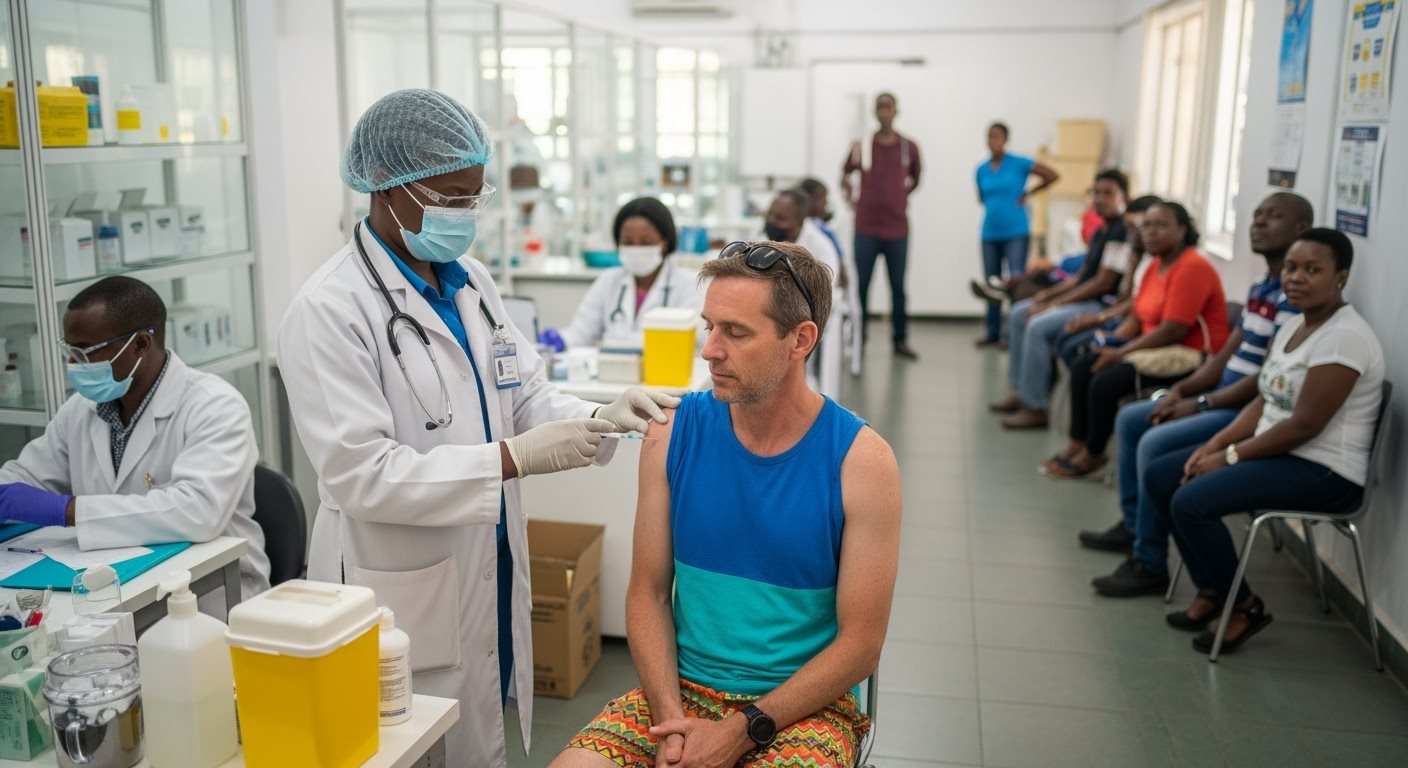Complete guide to yellow fever vaccination for Uganda travel. Learn where to get vaccinated, certificate requirements, appointment booking, and essential health preparation for your Uganda trip.

Yellow fever vaccination is a mandatory requirement for all travelers entering Uganda. This comprehensive guide covers everything you need to know about getting vaccinated, from finding authorized clinics to understanding certificate requirements and preparing for your appointment.

| Provider Type | Vaccine Cost | Consultation | Certificate | Total Range |
|---|---|---|---|---|
| Travel Clinics | $120-200 | $50-100 | Included | $150-300 |
| Public Health | $80-120 | $20-50 | Included | $50-150 |
| Primary Care | $100-150 | $30-75 | $10-25 | $100-200 |
| Airport Clinics | $150-250 | $50-150 | Included | $200-400 |

For identity verification and certificate completion
Driver's license or state ID as backup
Previous vaccination history if available
Health insurance information
Prepare complete list of current medications and supplements
Know your allergies, especially to eggs or previous vaccines
List any chronic conditions or immune system issues
Inform if pregnant, trying to conceive, or breastfeeding
Low-grade fever (99-101°F) for 1-2 days
Normal immune response, treat with acetaminophen if neededPain, redness, swelling at injection site
Apply cold compress, avoid rubbing areaMild tiredness for 1-3 days
Rest and stay hydrated, avoid strenuous activityMild to moderate headache
Use over-the-counter pain relievers as neededAnaphylaxis (extremely rare - 1 in 131,000)
Seek immediate emergency medical careEncephalitis or brain inflammation (very rare)
Contact healthcare provider immediatelyMulti-organ failure (extremely rare)
Emergency medical attention requiredKeep in plastic sleeve or waterproof document holder
Create multiple photocopies and digital scans
Keep with passport in secure travel document holder
Store original in fireproof safe when not traveling
Take clear, high-resolution photos of certificate
Scan to PDF format for digital storage
Upload to secure cloud storage services
Email copies to yourself for easy access
Ensure up-to-date with routine vaccinations
Tetanus booster every 10 years
Annual flu vaccination recommended
Recommended for all travelers to Uganda
Especially if eating local food
Consider for extended stays
Uganda is a high-risk malaria area. Malaria prevention is essential for all travelers.